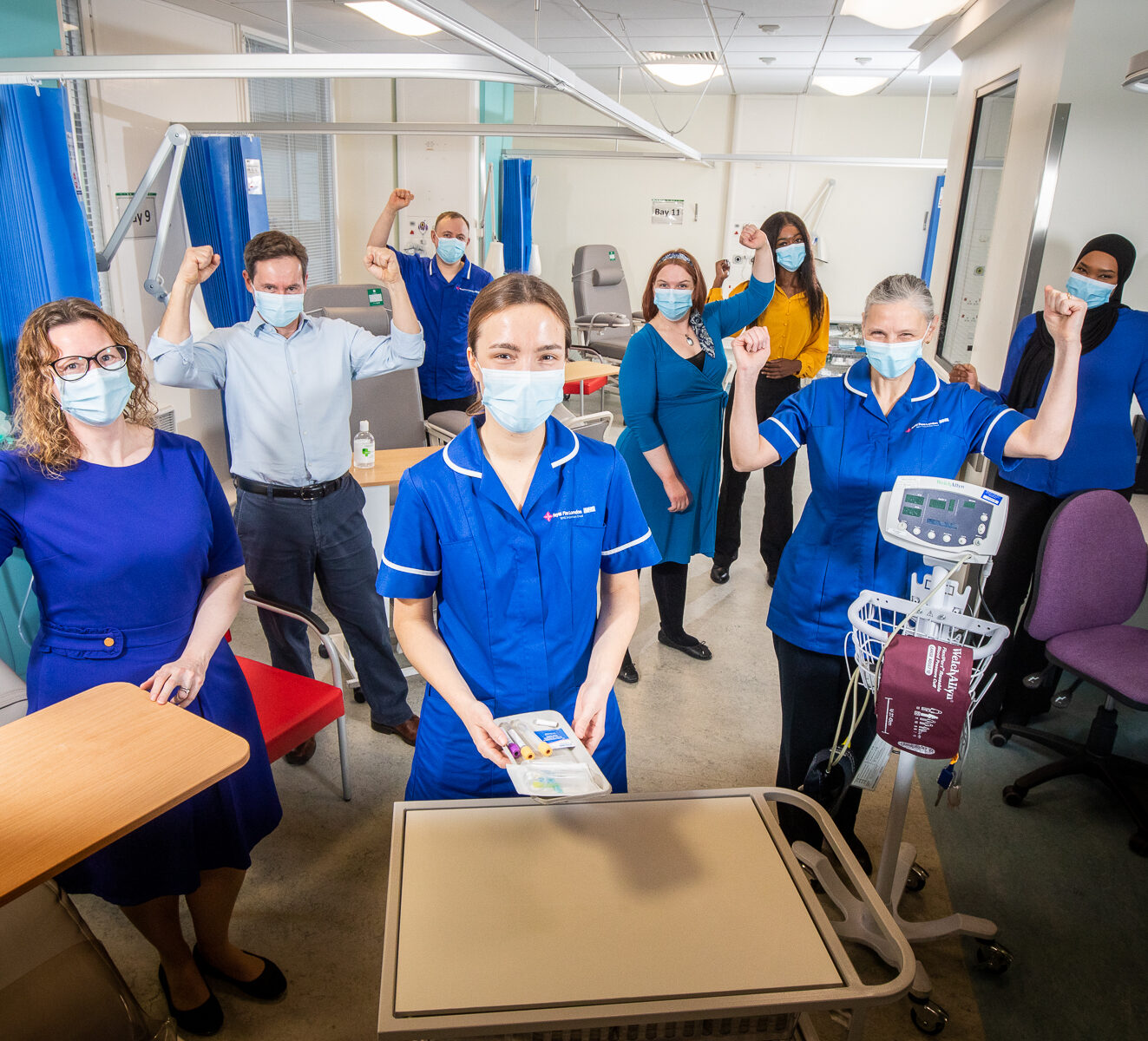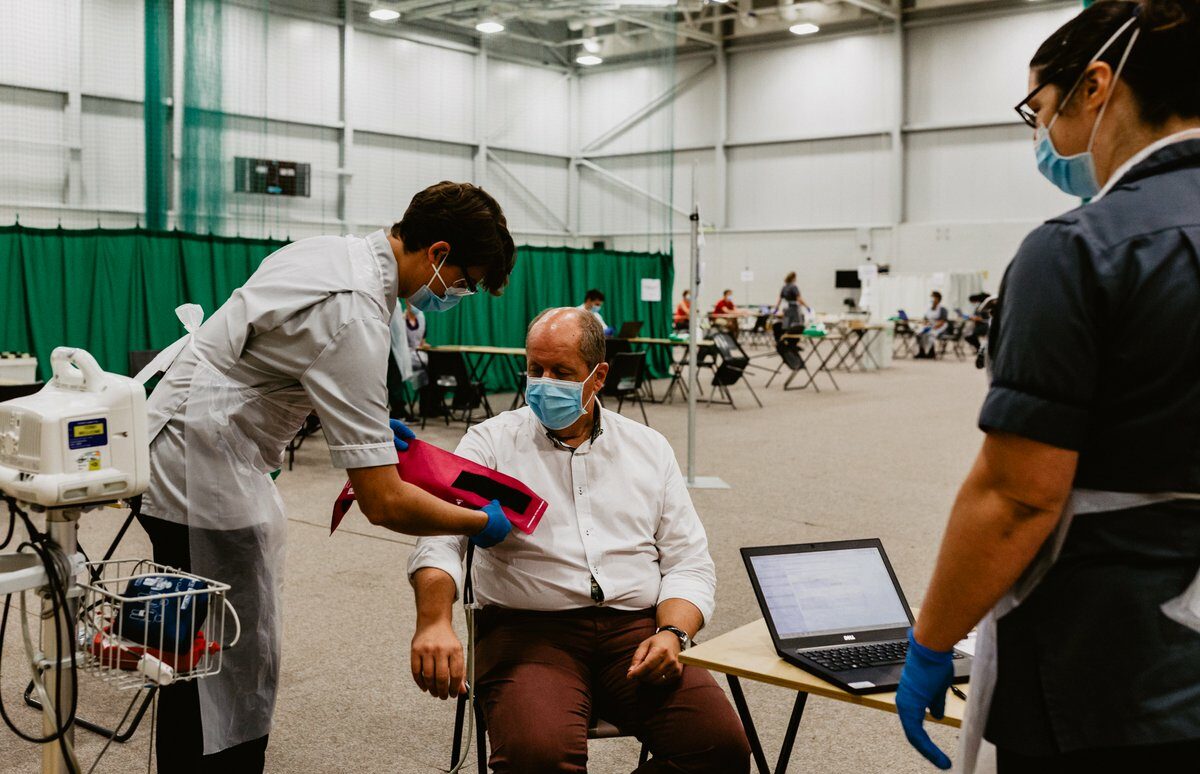
NIHR have announced the 2022 to 2027 NIHR CRF funding cycle.
Congratulations to all newly funded NIHR CRFs.
The National Institute for Health Research has announced nearly £161 million to fund 28 NIHR Clinical Research Facilities (CRFs), expanding the delivery of early phase clinical research in NHS hospitals across England.
CRFs support the delivery of early translational and experimental medicine research, from studies testing new treatments in patients for the very first time (first-in-human trials) through to early safety and efficacy trials (Phase IIa trials). They provide dedicated purpose-built facilities and expertise for the delivery of high-intensity studies funded by the NIHR, the life sciences industry and other organisations.
A total of 28 NIHR CRFs have been awarded funding in this latest round – five more than previously. About half of the funding has been awarded to NIHR CRFs outside of London, Oxford and Cambridge, including new CRFs in Norfolk and Bristol, delivering towards the government’s mission to level up domestic public investment in research and development.
- NIHR Alder Hey CRF (Liverpool) (press release)
- NIHR Barts CRF (London)
- NIHR Birmingham CRF (press release)
- NIHR Bristol CRF (press release)
- NIHR Cambridge CRF (press release)
- NIHR Exeter CRF
- NIHR Great Ormond Street Hospital CRF (London) (press release)
- NIHR Guy’s & St Thomas’ CRF (London) (press release)
- NIHR Imperial CRF (London) (press release)
- NIHR Lancashire CRF (press release)
- NIHR Leeds CRF (press release)
- NIHR Leicester CRF (press release)
- NIHR Liverpool CRF (press release)
- NIHR Manchester CRF (press release)
- NIHR Moorfields CRF (press release)
- NIHR Newcastle CRF (press release)
- NIHR Norfolk CRF
- NIHR Nottingham CRF (press release)
- NIHR Oxford CRF (press release)
- NIHR Oxford Health CRF (press release)
- NIHR Royal Free CRF (London) (press release)
- NIHR Royal Marsden CRF (London) (press release)
- NIHR Royal Surrey CRF (press release)
- NIHR Sheffield CRF (press release)
- NIHR Southampton CRF (press release)
- NIHR South London and Maudsley CRF (formerly Kings CRF)
- NIHR St George’s CRF (London) (press release)
- NIHR UCLH CRF (London) (press release)
NIHR CRFs are a key part of the UK’s leading early stage clinical research infrastructure and play an important role in making the country a global hub for life sciences. Combined with the NIHR Clinical Research Network and its pivotal role in delivering Phase II and III trials, the NIHR supports research delivery across all phases of clinical research.
NIHR has increased its funding for CRFs by £49 million in this round of funding, as a signal of its aim to increase its work with the life sciences industry. These CRFs, which will run from 2022 to 2027, will also play a key role in realising the ambition in the vision for the future of UK clinical research delivery to bolster the delivery of innovative trials across all phases, all treatment types and all conditions.

Professor Lucy Chappell, Chief Executive of the NIHR and Chief Scientific Adviser to the Department of Health and Social Care, said:
“NIHR’s CRFs scheme has been a key force in translational research across England, helping to position the nation as internationally competitive in early stage clinical research.
“This new funding, a 43% increase, will allow the CRFs to continue to drive forward innovation in experimental medicine and support translation of exciting discoveries into new treatments for patients.”
 .
.
Professor Tim Meyer, Director, NIHR Royal Free CRF said:
“On behalf of the Clinical Research Facility, I am absolutely delighted that NIHR has recognised the huge potential of RFL to deliver an ambitious program of clinical research over the next five years. Not only will NIHR funding provide key infrastructure to support RFL investigators, but we will also become part of the national Network of NIHR CRFs which have played such a critical role in developing new treatments for COVID-19 and will continue to transform healthcare in the future.”

Tracy Kumar, NIHR Leicester CRF Manager, said:
“We are delighted to be able to build on and strengthen our early-phase research in Leicester with this new funding and to be joined by our partners at University Hospitals of Northamptonshire as we embark on what I believe is a very exciting future for our patients, research volunteers, staff and wider health community.
We are grateful to NIHR for investing in Leicester and look forward to bringing novel treatments to patients as well as supporting our staff to train and develop skills to manage some of the most complex treatments at the cutting edge of medical science.”
The NIHR detail some of the amazing CRF achievements in early phase research delivery and our massive contribution during the COVID-19 pandemic
More than a decade of delivering innovative research
The research delivered by the CRFs since first funded by the NIHR in 2007 has provided faster access for patients to novel treatments and supported growth in early stage research in England, translating new advances to patient benefit and wider economic gain.
In the past year (FY20/21), NIHR CRFs have supported 4,984 studies, with nearly 20% being first-in-human trials. The CRFs leveraged £144 million of funding that year from the life sciences industry and other funders, representing a significant return on investment.
The NIHR CRFs have delivered studies on a number of treatments that have gone on to be introduced into care for patients. For example, the NIHR Alder Hey CRF provided the leadership, expertise and environment for two of the first three international trials into a new drug for hard-to-treat forms of epilepsy. Epidyolex, a high quality and pharmaceutical grade medical cannabinoid, is now licenced in the US and UK for the treatment of Dravet and Lennox-Gastaut syndromes.
Researchers working with the NIHR Exeter CRF (pictured below left) have developed a simple at-home urine test to help doctors diagnose what type of diabetes a person has and ensure they receive the right treatment. Costing less than £11, the test is now used in nearly every hospital in the UK. As a result, some patients thought to have type 1 diabetes have been shown to have another type of diabetes and been able to stop insulin treatment.

NIHR Exeter CRF

NIHR Southampton CRF
University Sports Hall
At the forefront of early stage COVID-19 research
The CRFs were a crucial component of the nation’s COVID-19 response, supporting the delivery of early phase experimental medicine studies and Urgent Public Health studies. The CRFs’ knowledge and expertise, as well as the availability of existing facilities and networks, ensured studies were delivered quickly, safely and in an efficient and coordinated way.
For example, the NIHR Southampton CRF set-up a dedicated vaccine trials centre within a locked-down university sports hall in just four days (pictured above right). The team opened a Phase I study of the Oxford/AstraZeneca vaccine within a week, and by August 2020 had recruited nearly 700 people to early phase trials of the vaccine.
The NIHR Royal Liverpool CRF recruited 60 participants in six weeks to the AGILE platform trial, a study designed to test potential new drugs to treat COVID-19. AGILE is distinct from other UK COVID-19 platform trials in that it tested new drugs, those that had never been tested in humans before, and repurposed drugs. The CRF team developed guidance on how to quickly identify new mild COVID cases (the trial’s recruitment strategy) and made this available to all other research sites across the UK.
During the pandemic, the CRFs altered their ways of working to ensure essential non-COVID studies could also continue. Many CRF staff were redeployed to the NHS frontline, with their skills and expertise enabling the rapid set up of Urgent Public Health trials and providing clinical research training to healthcare professionals with little previous research experience.




